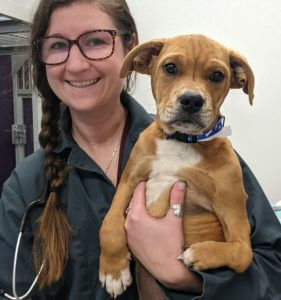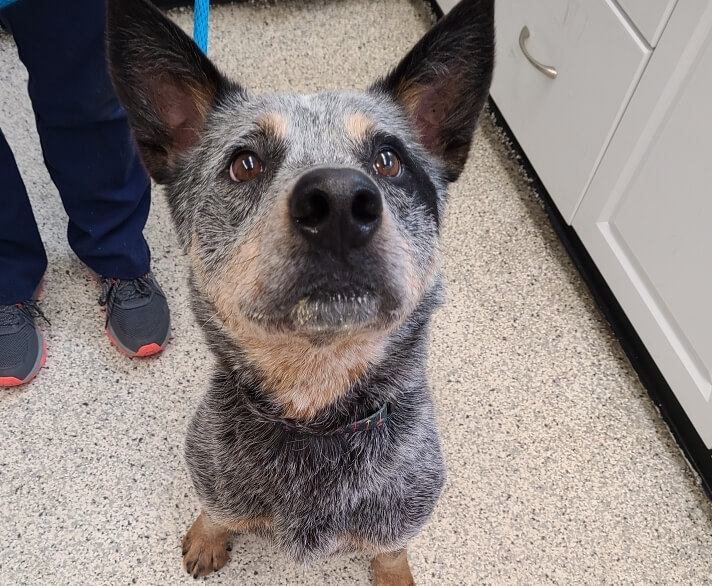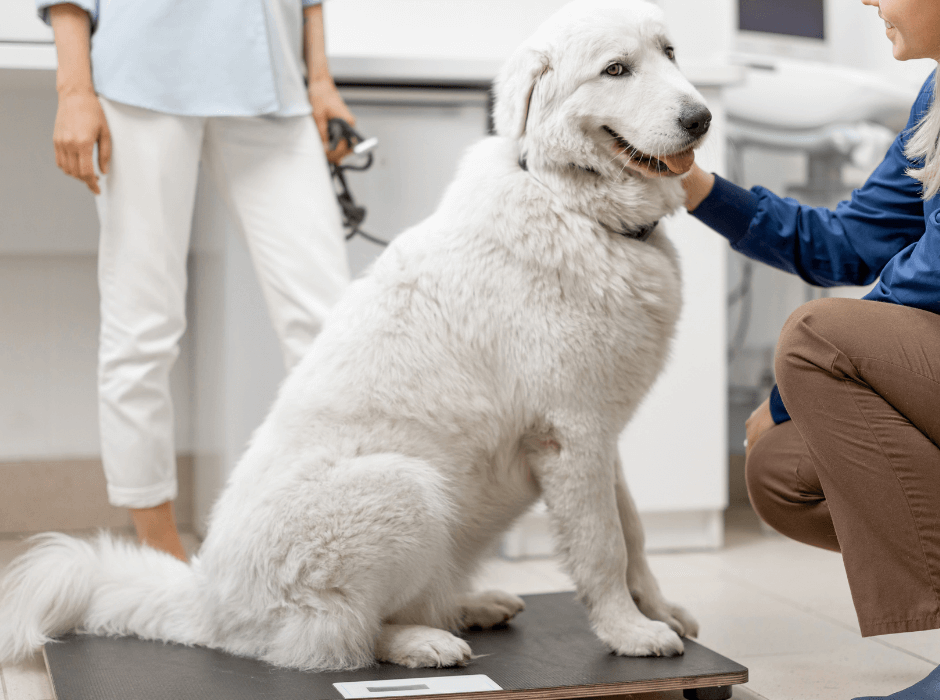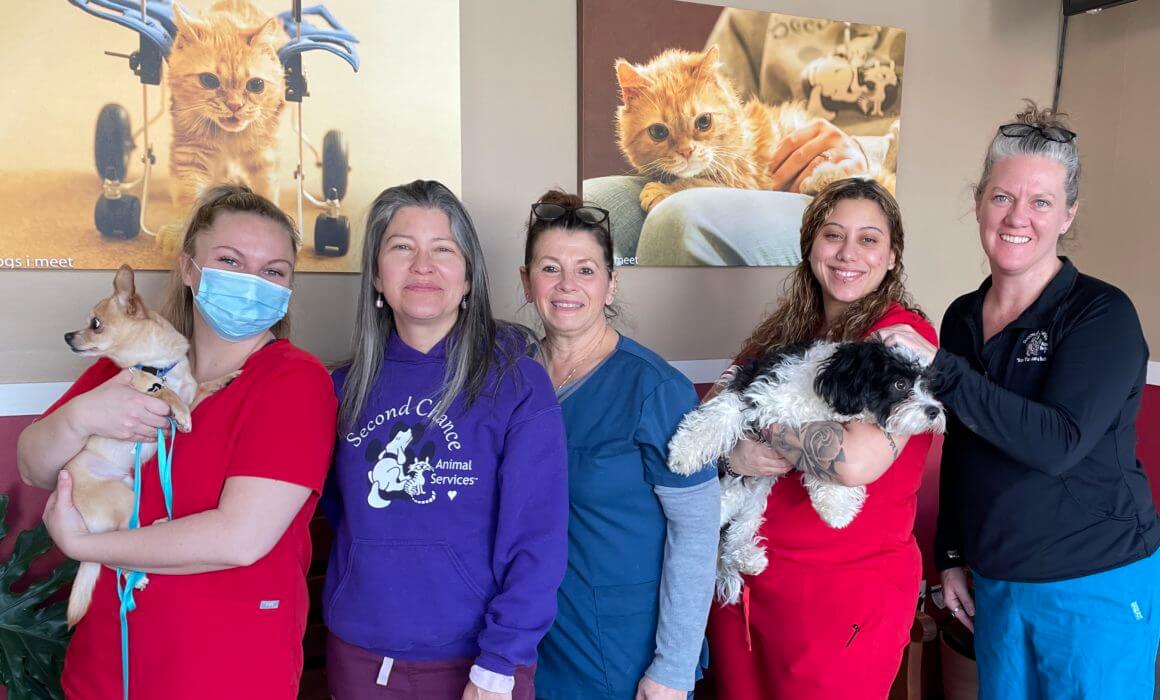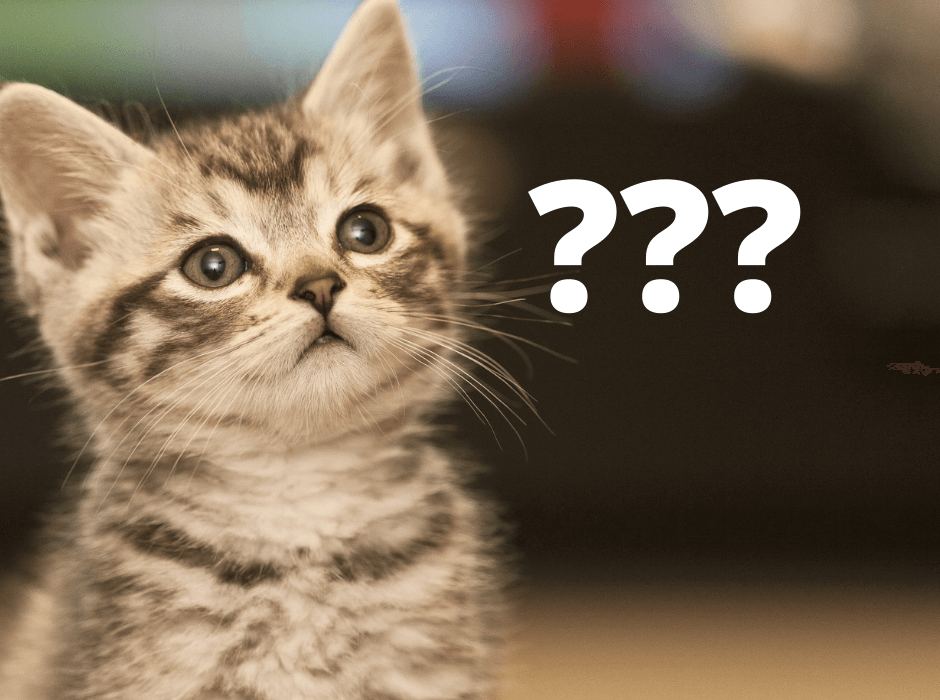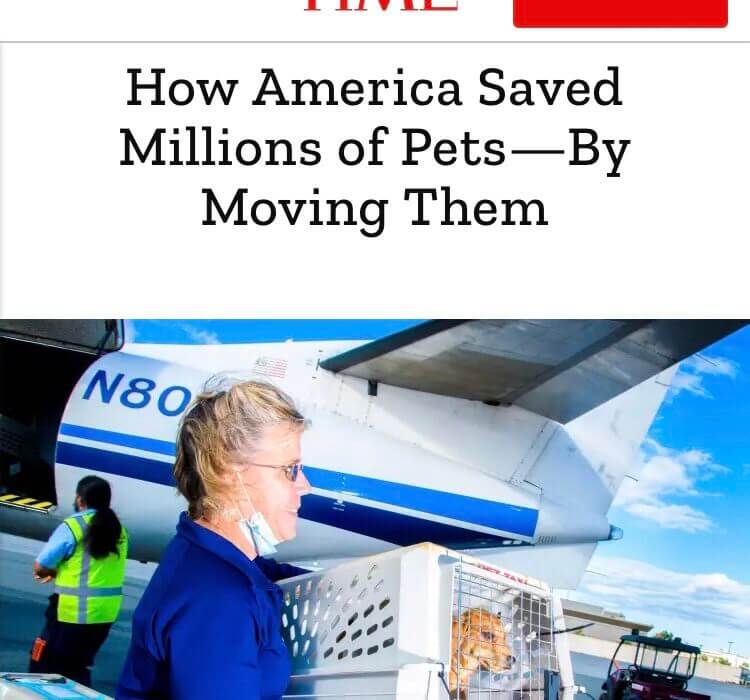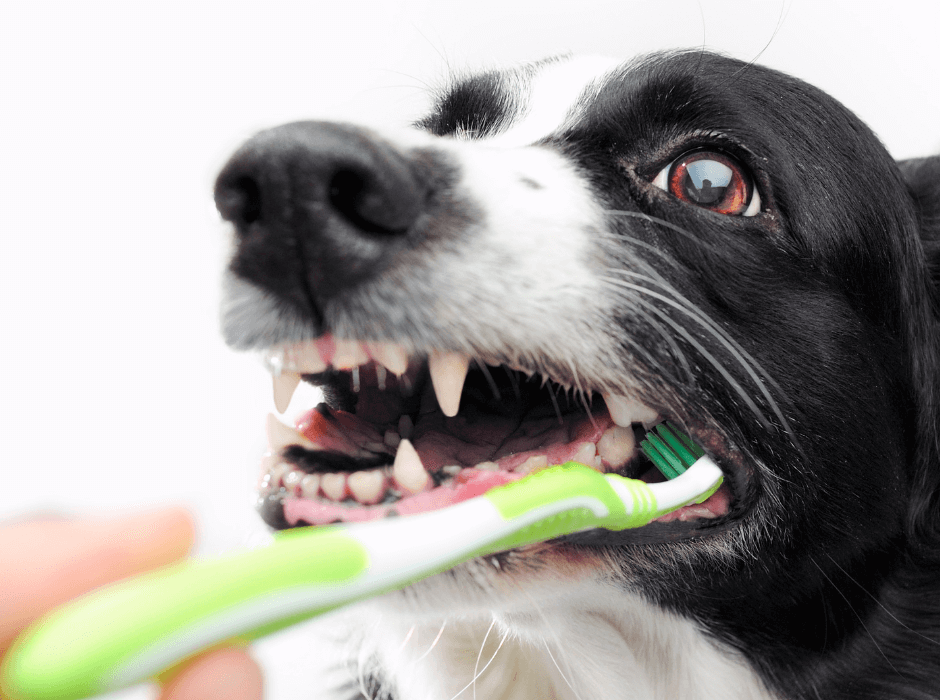The Story of Mazeikeen
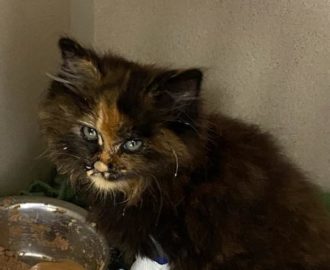 Mazeikeen was approximately 6 weeks old when she was found by a Good Samaritan in a cardboard box next to a dumpster. Her rescuer brought the sweet baby kitten to Second Chance Animals Services for help. When she arrived at Second Chance, she was cold, dehydrated, and listless. She was having seizure-like episodes due to severely low blood sugar.
Mazeikeen was approximately 6 weeks old when she was found by a Good Samaritan in a cardboard box next to a dumpster. Her rescuer brought the sweet baby kitten to Second Chance Animals Services for help. When she arrived at Second Chance, she was cold, dehydrated, and listless. She was having seizure-like episodes due to severely low blood sugar.
Our doctors worked hard to get this little girl feeling better. They found that her dehydration and other symptoms were due to severe diarrhea that was caused by an infestation of internal parasites – roundworms. These worms were literally sucking the life out of the little 1.2-pound sweet girl. We hospitalized Mazeikeen in hopes of saving her. They needed to treat her worm infestation and diarrhea while upping her blood sugar and rehydrating her.
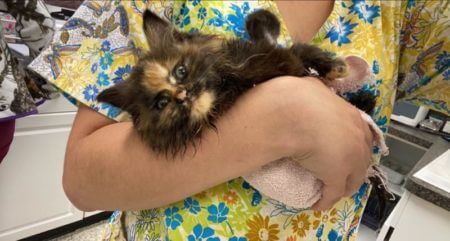 Loving technicians even took her home overnight to ensure that there was never a moment that she was left alone and without care. After three and a half days of supportive around the clock care, this little girl’s body just could not fight any more. The worms left her very sick despite all our efforts. In the end the Second Chance team had to say goodbye to this girl that they poured their hearts into over the last few days.
Loving technicians even took her home overnight to ensure that there was never a moment that she was left alone and without care. After three and a half days of supportive around the clock care, this little girl’s body just could not fight any more. The worms left her very sick despite all our efforts. In the end the Second Chance team had to say goodbye to this girl that they poured their hearts into over the last few days.
While we are devastated over the loss of sweet Mazeikeen, we want to make her story a learning opportunity.
It is never okay to dispose of an animal on the streets, in a box, a dumpster, etc. There are always resources to re-home animals of any age and condition and organizations like Second Chance can and will help!
Internal parasites (worms) may not seem like that big of a deal but can be detrimental to puppies/kittens and even adult animals in high volumes. It is always recommended to bring a fecal sample for parasite testing to each yearly wellness examination to ensure that your pet does not have a worm that may require further treatment. Puppies and kittens are at higher risks – not only can they pick up these parasites from their surroundings, but they can be passed from their mothers. It is always recommended to get puppies and kittens dewormed several times during their first few months of life to help treat these worms before they get out of control and cause serious health concerns. All Second Chance locations offer deworming at our low-cost vaccine clinics and during office visits at our full-service hospitals. Talk to your veterinarian about deworming your pet and testing a fecal sample to ensure your pet does not need treatment for parasites.
Dr. Jackie Celmer
Second Chance Animal Services Veterinarian

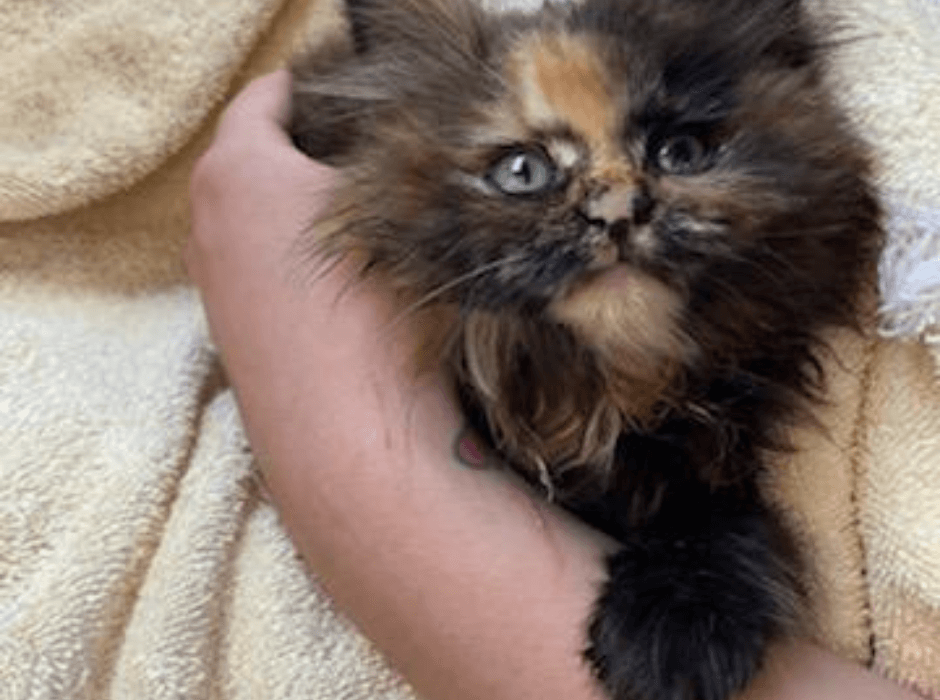
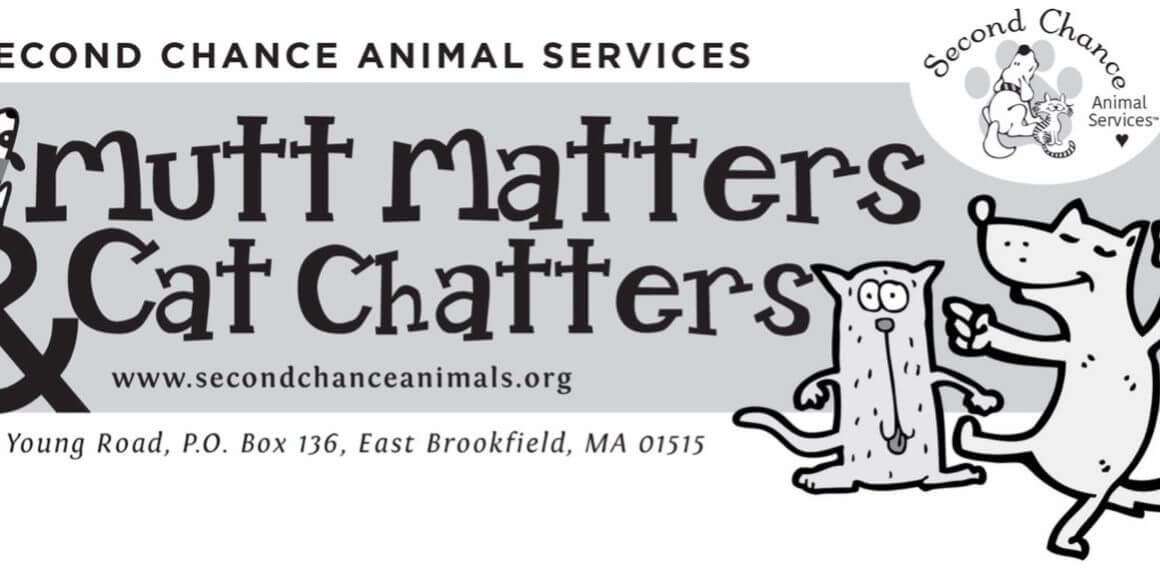
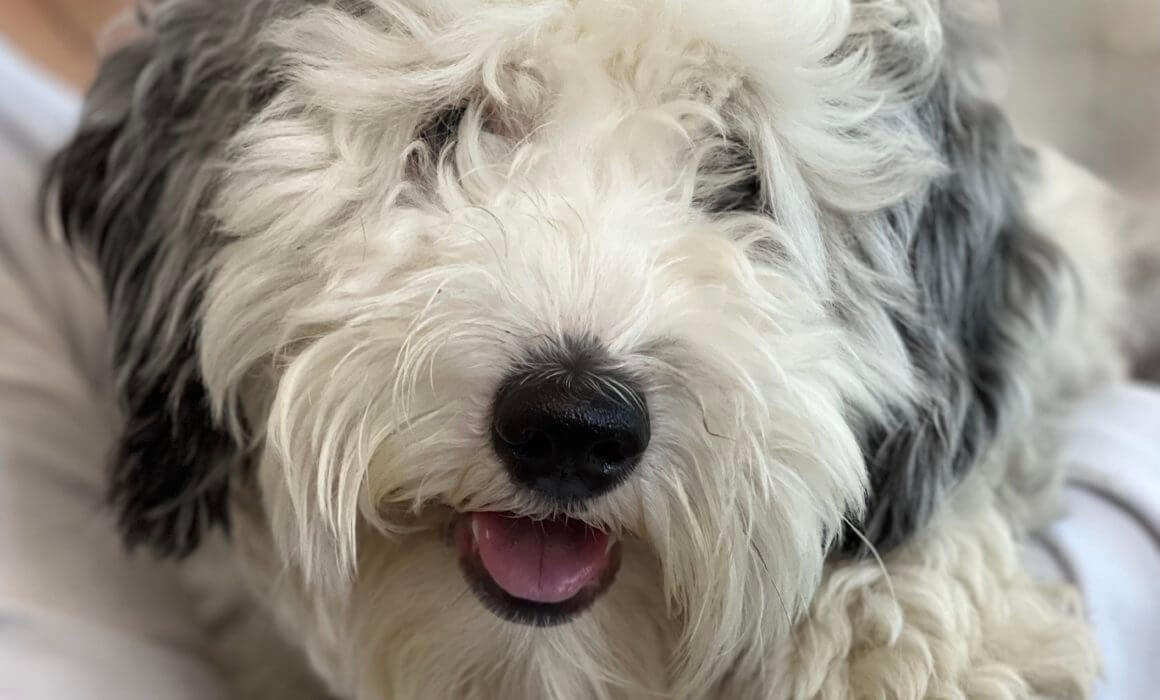
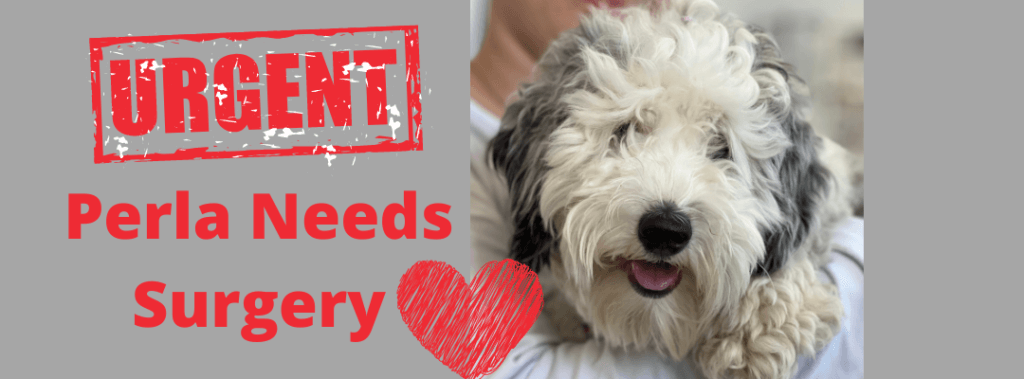
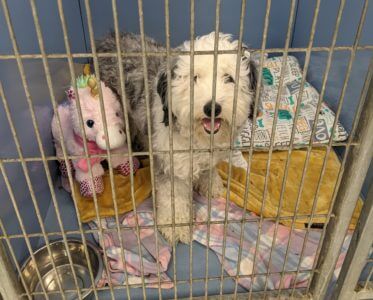
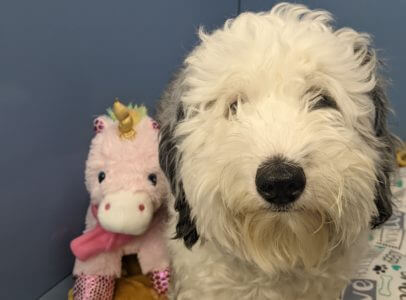
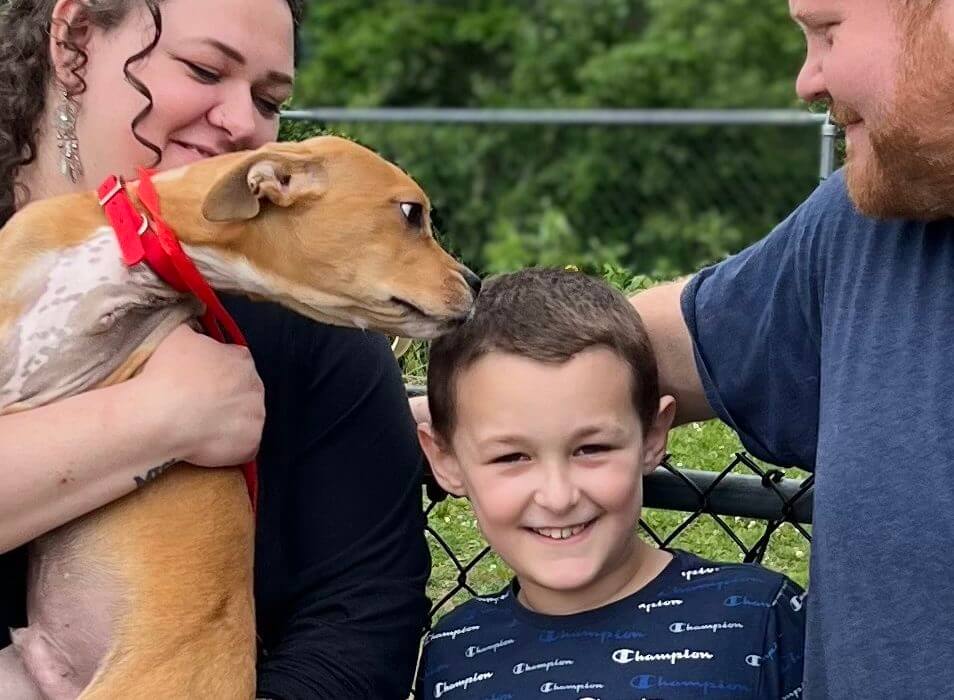
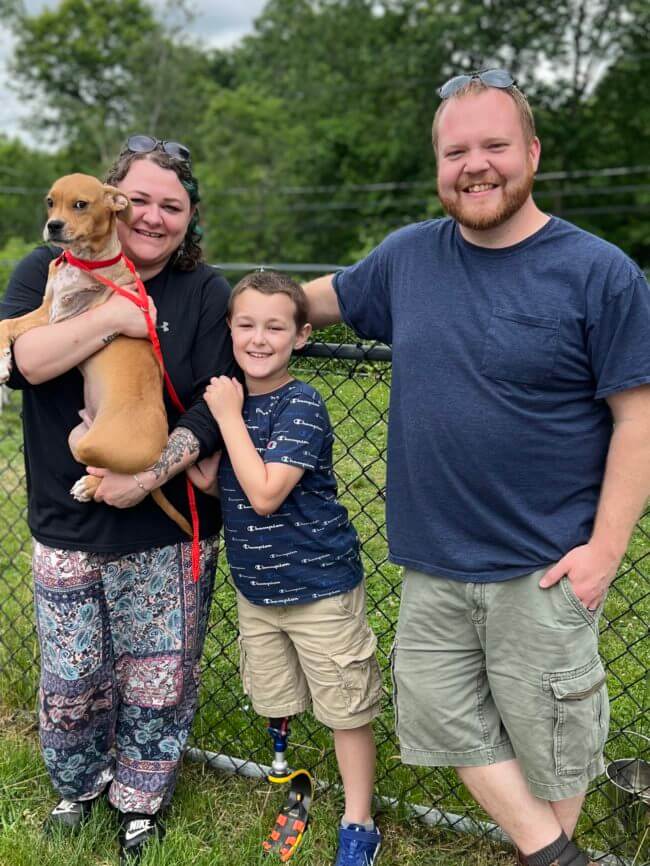 A shelter dog who had amputation surgery for a birth defect has found a forever home with an eight-year-old boy who can relate.
A shelter dog who had amputation surgery for a birth defect has found a forever home with an eight-year-old boy who can relate.